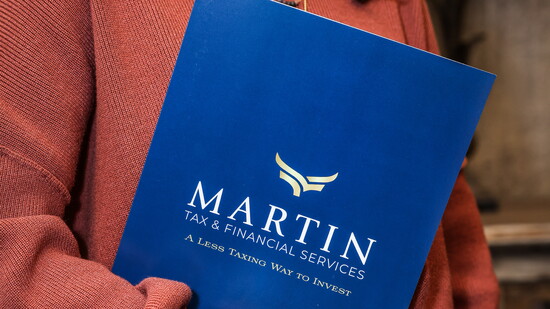Martin Tax & Financial Services was opened in 1987 by Michael Martin. They began as a tax preparation firm and after recognizing the need for tax advice in connection with clients’ investment accounts, Mike added wealth management and retirement planning services to the firm’s offerings.
Laurie Martin, Mike’s daughter, took over ownership of Martin Tax & Financial Services in 2017 after practicing law for several years. Since taking over, she has carried on the firm’s mission of helping clients plan for their financial futures, with retirement planning being a key focus.
She explained that the first step in retirement planning is identifying your financial goals and gaining a clear understanding of your current financial situation. Your financial advisor will ask detailed questions about you, your family and your objectives. They will need information about your income, expenses, assets and debts, including copies of your tax returns and recent statements reflecting any of that information, such as your retirement plans, investments, and any loans.
Some of the initial questions your advisor will ask are:
-
What age would you like to retire?
-
How much income do you expect to need to maintain your standard of living in retirement?
-
Do you hope to travel, explore new hobbies or spend time with family and friends after you retire?
-
Are there any major expenses you expect to incur?
-
Will you continue to work part-time or have other income sources in retirement?
-
Do you have any health concerns that will impact your finances or longevity?
“It is never too early or too late to begin thinking about retirement. Starting in your 20s or 30s is ideal, as it gives you the longest runway for ensuring you reach your goals. In your 40s and 50s, you still have an opportunity to make significant progress with smart financial strategies,” she continued. “No matter how old you are, planning with a professional will improve your chances of reaching your goals.”
While saving is important, preparing for retirement isn’t just about saving, it’s about creating a strategy that ensures financial security and peace of mind. Laurie shared some essential steps to help you build a strong retirement plan:
-
Maximize your retirement account contributions
-
Be sure to save outside of your retirement accounts as well
-
Create an emergency fund
-
Create a plan for paying off debt
-
Diversify your investments
-
Ensure you have appropriate insurance coverages
-
Develop a tax-efficient strategy for withdrawing from your accounts
-
Work with a financial advisor who is knowledgeable about taxes
-
Create an estate plan to protect your legacy
She explained, “A financial advisor can advise you on how to maximize the impact of each of these steps and help you ensure you’re on the right path. You should think of retirement planning as an ongoing process rather than a task to complete. As your circumstances change or new events occur in your life, you should update your plan. Working with an advisor will help you keep things organized and up to date.”
Their financial advisors are well-versed in taxes, which sets them apart. Taxes impact your financial situation throughout your working life and into retirement. Making tax-conscious financial decisions and investing in a tax-efficient manner can significantly affect your long-term wealth.
“Tax laws change frequently. It is important to work with an advisor who stays up to date on the latest tax laws. We also value education, and our goal is to empower our clients with knowledge that will allow them to grow in their understanding of their finances,” she shared.
The best first step is to meet with a financial advisor. A skilled financial advisor will answer all of your questions and explain the process to you in a straightforward and understandable way. Retirement planning can feel overwhelming, but with the right guidance, it becomes a clear and manageable journey.
Some common misconceptions about retirement planning and / or working with a financial advisor:
You don’t have enough money – Everyone can benefit from financial planning and guidance, no matter how much money they have.
You can’t afford it. Retirement planning costs vary by advisor, and many offer payment plans or reduced fees for clients with fewer assets or less complex situations. Some advisors will include financial planning at no additional cost if you allow them to manage your investments. A good advisor will clearly explain all fees involved.
You’re too young/old – You’re never too young or too old to start saving and planning for your future.
Fear of judgement – Many people feel embarrassed about what they don’t know, or fear being judged for past financial mistakes. A good financial advisor provides guidance without judgment and helps clients build confidence in their financial future.
Ultimately, retirement planning isn’t just about saving, it’s about creating a strategy that supports your long-term financial well-being. Martin Tax & Financial Services is committed to providing the expertise and personalized service needed to help you make informed, tax smart decisions and secure the future you’ve worked hard for.
Visit mtfskc.com
